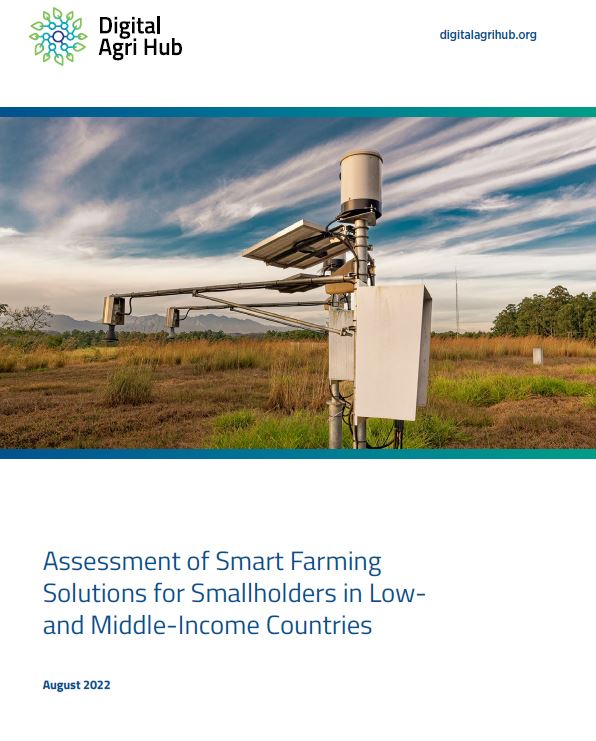Smart farming solutions can play an important role in helping smallholder farmers in low- and middle-income countries (LMICs) increase their productivity and resilience to disaster by opening access to assets and mechanisation, optimising the use of inputs, labour and natural resources and reducing crop and animal losses and waste.
This report explores the emergence of smart farming solutions in LMICs and identifies opportunities to scale these solutions. It provides supply-side solution providers, such as agritech innovators and mobile operators, as well as the investors and donors that support them, with insights into the smart farming opportunities in LMICs.
Digitalisation for agriculture (D4Ag) providers1
are reporting
several benefits from the use of smart farming tools, including
shorter production cycles, reduced land preparation and labour
costs, lower use of inputs and scarce resources like water, higher
yields, less spoilage and fewer losses from pests and diseases.
Still, smart farming solution providers face a variety of challenges
to achieving scale, including low digital and technical literacy
among smallholders, the high cost of devices, the high cost of
connectivity and ongoing services and the lack of mobile and IoT
network coverage in rural areas.


No comments:
Post a Comment